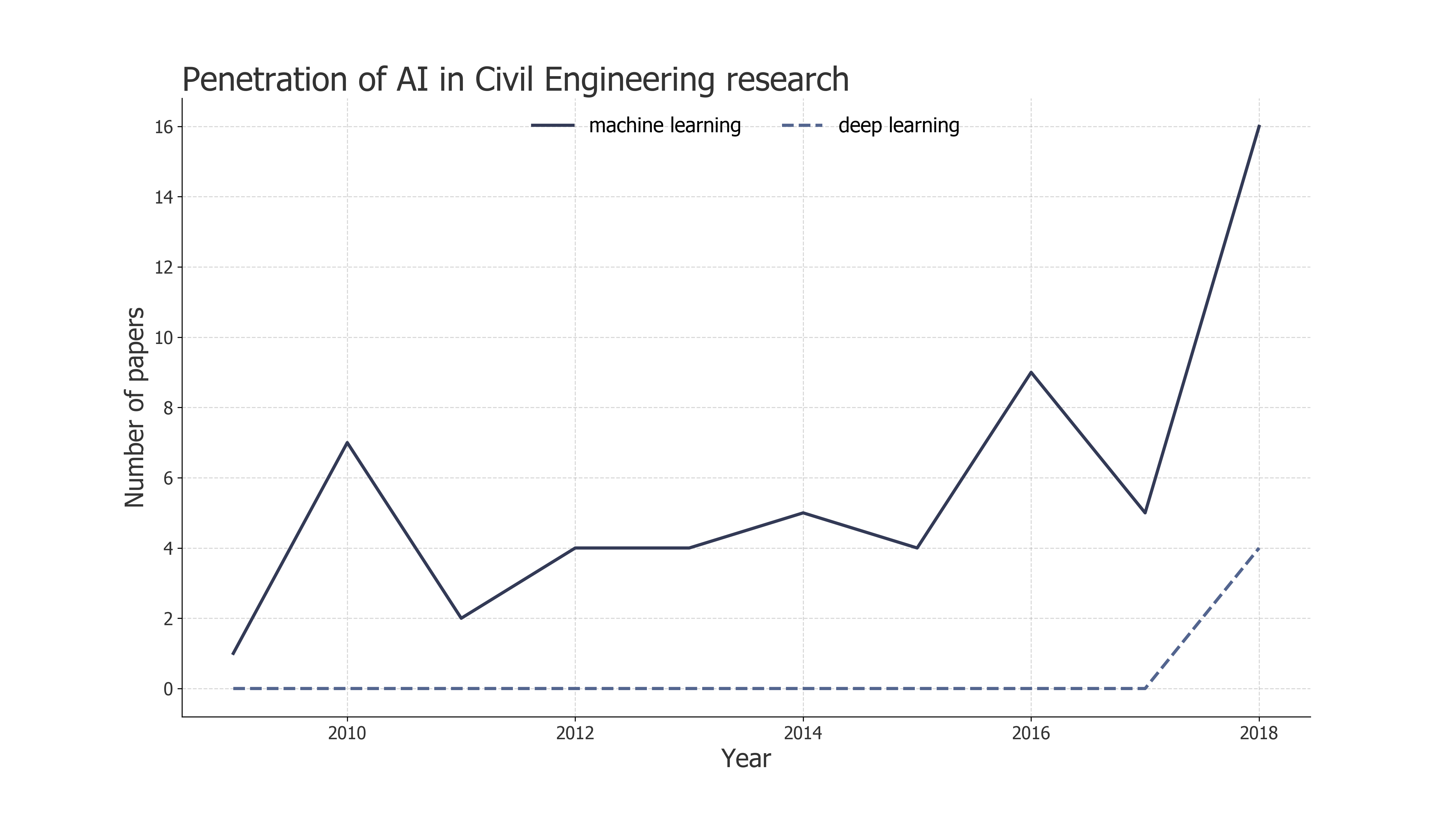Sokratis Papadopoulos data | urban | policy
AI and Civil Engineering

We live in an era where buzzwords such as “artificial intelligence” or “deep learning” are gaining increasing interest from the general audience, not only the academic community. There is no doubt that we are part of the fourth industrial revolution, and tech giants are investing billions of dollars in AI research.
Same applies to academia, either by developing novel learning algorithms or by using existing methods to answer research questions in a more accurate and comprehensive way. The past year I attended several civil/urban engineering conferences and was excited to see a significant shift towards applied machine learning research (much needed in my opinion). This is particularly encouraging, since civil engineering is often considered as the “laggard” engineering domain when it comes to innovation and disruptive technologies.
In this post I scraped the ASCE Journal of Computing in Civil Engineering website to see how AI approaches have penetrated civil engineering research the past decade. I searched how words such as “machine learning”, “artificial intelligence”, and “deep learning” were used in paper titles and here is what I found.

I split the search into “machine learning” and “deep learning”, with the latter including keywords such as “convolutional”, “reinforcement learning”, and “deep learning”. Although we see a positive trend in machine learning related research accross the timeline, it appears that 2018 was a pivoting year for AI and civil engineering, with the volume of papers growing more than 3x compared to the previous year. Interestingly, it is only until 2018 when any deep learning research is published in JCCE.
This is definitely a promising outlook for the future of AI and civil engineering. There is no shortage of applications where AI can help monitor, understand and improve civil/urban engineering systems, including urban infrastructure management, traffic optimization or BIM improvement to name a few. Looking forward to see more advancements in 2019.
The code used to scrape the data can be found here.
Written on January 4th, 2019 by Sokratis Papadopoulos